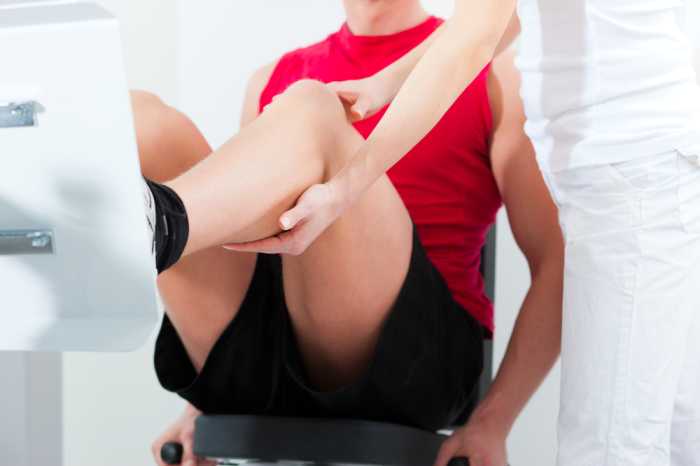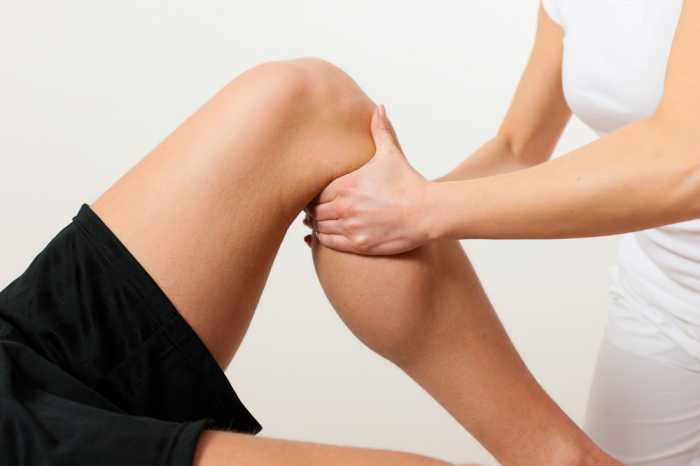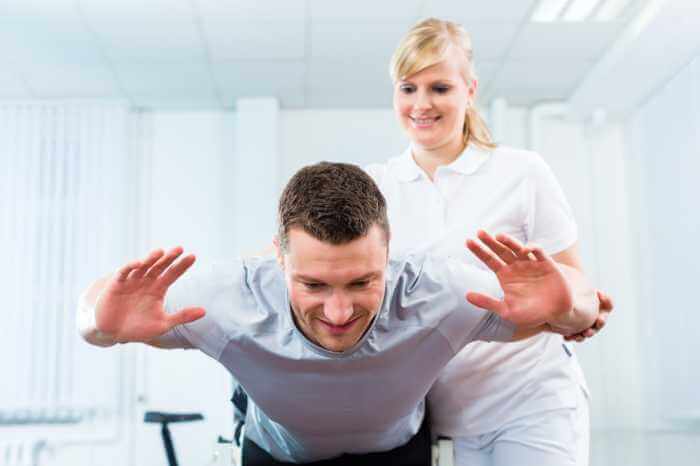Professional athletes may get injured during training or competition due to the high stress and demands on the body. After training, competing, or when getting hurt, athletes must rehabilitate the condition and injury of their bodies to prevent re-injury.
In these situations, an advanced physical therapist is what you need, one who can provide elite sports therapy. A physical therapist can help your body recover from an injury. But participating in physical therapy for sports teams isn’t just about winning or losing during a competition. It’s about maintaining the athlete’s health and well-being.

9 Reasons Why You Need Physical Therapy for Sports Teams
- Improved Ranged of Motion
Range of motion exercises aims to move a particular joint and surrounding soft tissues to stimulate healing and protect against further injury. These exercises can help prevent complications, such as shortening your muscles, ligaments, and tendons. If you’re experiencing some amount of paralysis of one or more joints, a passive range of motion can also help prevent contractures — the fixed tightening of skin, ligaments, muscles, or tendons. That keeps skin pressure ulcers from forming.
Most sports require some level of flexibility to perform as well as possible.
The exercises in a physical therapist’s treatment plan often focus on improving joint and muscle flexibility, especially for athletes who require tremendous flexibility, such as gymnasts and swimmers.
2. Neuromuscular Control
Coordinating the various body parts to work together is the job of sports medicine physical therapists. During neuromuscular coordination, the focus is on the motions of the joints by the muscles, tendons, and nerves. Focusing on these body parts prepares an injured athlete to return to sports by increasing movement speed during exercises and progressively adding weight.
A physical therapist uses physical exercises and manual therapies specific to your condition to help you move and perform better. They also guide and instruct you on using adaptive devices for tasks you need extra assistance with.
3. Positioning and Technique

Some non-sports physical therapists may pay more attention to guaranteeing athletes know how to position or move their bodies to achieve a task. However, small details about positioning and technique can help athletes align their bodies accurately to load proper tissue, like bones, tendons, and muscles. It also helps unload the wrong tissue, conserve energy, and enhance movement efficiency and performance. Sports physical therapists start technique training for specific exercises beginning on day one and remain focused on technique.
4. Muscle Balancing
If you are diagnosed with muscle imbalance, your physical therapist will quickly set up a customized treatment plan to help build up the weaker muscle groups. Specific exercises will be advised to target the right parts, and they’ll guide you through how to perform all of these movements so that you can do them from the clinic to the comfort of your home.
Alongside a strength training exercise, your physical therapist may also teach you some stretching routines to help elongate some of your tense muscles that you have acquired at the expense of some of the stronger opposing muscles.
5. Increasing Power, Strength, and Speed
An athlete’s sport may vary in power, strength, and speed combinations. To maximize muscular strength and size, athletes must load their muscles with heavier weights, raise their sets and lower the repetitions per set. Some patients do three groups of 10 with weights that are not challenging enough to build proper muscular strength.
Most athletes are always searching for ways to maintain and increase their strength. Physical therapy for sports teams can help strengthen ligaments, muscles, and joints, which improves overall physical force in the body.
Enhanced physical strength through physical therapy helps relieve high physical stress during games or matches. It’s especially beneficial for sports requiring high physicality, such as boxing.
6. Rehabilitation After Injury

Among the most common sports injuries that athletes seek therapy services are:
- Repetitive sports injuries – Whether you play basketball, baseball, or tennis, you know your sport demands you to make the same move repeatedly. Accordingly, this may result in ankle sprains, jammed fingers, or a rotator cuff injury. With that, you may need physical therapy for recovery.
- Fractures – No matter what sport, broken and fractured bones are some of the common reasons why athletes need therapy sessions. Physical therapy may be needed to recover from weakened tissues, muscles, and bones.
Injury rehabilitation helps in minimizing pain and heal the injured area. Physical sports therapy can recover it through specialized massage or electronic nerve stimulation machines. With exercise, motion, and therapeutic interventions, sports rehabilitation or sports physical therapy helps maintain health and fitness and enables you to recuperate from injury and reduce pain.
Having a personalized recovery plan by a physical therapist is essential when recovering from a sports injury. A good recovery plan should include the following:
- A timeline for when to start physical therapy.
- The type of treatment to be used.
- A goal for the patient.
- A plan for the patient to follow after physical therapy is complete.
It’s also important to remember that recovery time varies for each individual, so patience and listening to your body is essential.
7. Prepare Athletes for Coaching
When advanced physical therapy is almost complete, the athlete should be returning to practice and coaching. This crossover of sports therapy and live athletics allows the athlete to make sure they can return to their sport without any new symptoms. Working out the last areas of pain or tightness will ensure a safe return to coaches who expect to have an athlete ready to perform at their best.
8. Injury Prevention
Physical therapy for sports teams also focuses on prevention. While athletes are usually seen after an injury, it is essential to note that sports physical therapy also addresses the maintenance of the rehab program and prevention of any further harm.
Many athletic injuries are related to faulty biomechanics or muscle weakness, so working under the guidance of a sports physical therapist, each athlete can receive a comprehensive program of exercises and modalities that focus on maintaining muscle strength and endurance, as well as correcting any biomechanical insufficiencies. The athlete can feel confident that they have the tools necessary to maintain the gains made during rehab successfully.
9. Relaxing the mind and body after exercise
It’s equally as important for athletes to complete a proper cool-down after practicing or competing as it is for them to warm up. The good news is that physical therapy is one of the best cool-down methods available.
Working with a physical therapist after an athletic training session allows you to relax your muscles, regain energy, and reduce stress to have a healthier body to compete in your sport.
Conclusion
Sports injuries can not be avoided, especially if you are an athlete. Physical therapy for sports teams helps them with many physical benefits like pain treatment, recovery from injury, and increased physical strength. It is used as preventive care and post-injury treatment, making it vital for athletes looking to improve their performance on the field.
Physical therapy clinics that offer sports therapy strive to send you back in shape. It helps athletes become better and stronger athletes before the injury. Sports physical therapists use their skills and knowledge to rehabilitate your injury. After your sessions, you will get more fit and tough than before your injury to reduce your risk of re-injury and help you be an even better athlete.

